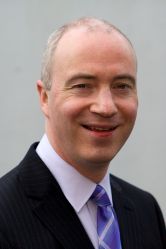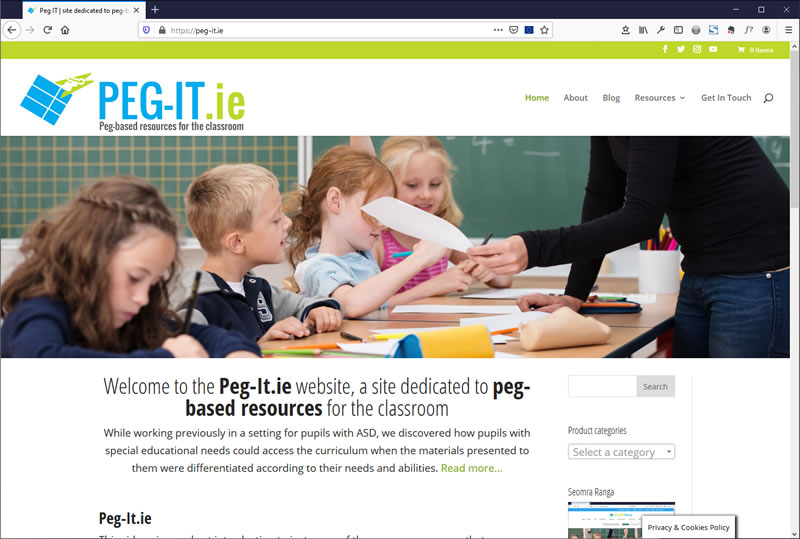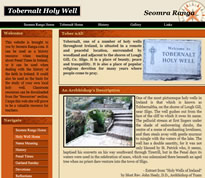 In his recent column on the ways in which teaching can change people’s lives, David McWilliams describes the wonderful impact that teachers have in leading learning – “It is a beautiful thing to see the weight of incomprehension being replaced by the freedom of understanding.” He notes his concern in relation to recent commentary that morale in the profession is low. I am delighted to reassure him that his positive experience in Newpark Comprehensive School is not an isolated one.
In his recent column on the ways in which teaching can change people’s lives, David McWilliams describes the wonderful impact that teachers have in leading learning – “It is a beautiful thing to see the weight of incomprehension being replaced by the freedom of understanding.” He notes his concern in relation to recent commentary that morale in the profession is low. I am delighted to reassure him that his positive experience in Newpark Comprehensive School is not an isolated one.
All around the country, teachers are leading innovation in learning, working with parents and the wider community, to empower students to ask and explore their own questions of the unknowable future. They are also giving students the resilience to cope with the inevitable uncertainty of that future.
On a recent visit to the Heath National School in Co. Laois, I had the privilege of listening to pupils in sixth class describe in their own words how their teacher had integrated mindfulness into their daily routine. They talked for an hour about the impact of this on their lives – how it helps them in their relationships with siblings; how it will help them in the transition to post-primary. They were clear that the skills they had acquired would give them the resilience they need to deal with life’s inevitable disappointments, as well as its golden moments. Their parents talked to me for another hour about the impact on their family life.
Teachers are forming their own collaborative communities of practice to help each other enhance their teaching and to support each other in the challenges they face. Two weeks ago I attended a ‘Teach Meet’, an informal event where teachers meet to share learning about new resources and new methodologies. They continued sharing their learning until 11pm – on a weeknight! I could hear the learning around me in the hall as teachers mused out loud as to how they would apply what they heard to their own practice.
Other teachers have approached us in the Teaching Council to tell us of “Learning Revolutions” they are leading in their own time in schools; of how they observe each other in trying out new methodologies and review the impact on their own practice and students’ learning, together. Teachers will tell you that education is about the processes of teaching and learning, more than the results of a particular test.
There is ample evidence for this on the Council’s website through the recordings of FÉILTE, the Festival of Education in Learning and Teaching Excellence. Now entering its third year, FÉILTE has provided a space where teachers tell the story of the innovation that they are leading in schools. Over the last two years, 2,000 people have engaged in this event. FÉILTE shows that at its heart, teaching is about people – teachers know that teaching only happens when others learn.
As a parent, I have learned much from my own children. One of the most important lessons they have taught me is that for them, life is all one flow. They don’t make clear distinctions between home, school, camogie training – each day is a whole and new experience. I know from personal experience how much our children can progress and learn when parents and teachers choose the time to have professional conversations about the issues in a spirit of reciprocal vulnerability, i.e. no-one comes to the table thinking they have all the answers!
We all need to talk more about teaching and learning, teachers, parents and wider society. At the core of the 21st century teacher beats the heart of an excellent learner. Teachers know they must always learn so that they can always teach. If there is one lesson to be drawn from our recent economic crisis, it is that we must adopt a constant, rigorous openness to learning – to never assume again that we have cracked it. If the “master” of the 20th century now views themselves as lifelong learners and as leaders of learning, they offer a great message of hope for all us.
Teachers learn every day about the needs of the children in their care. They learn during the week and at weekends about ideas that they believe will help them be better teachers. What we need to do in wider society is make sure they have the space and time to do the learning we know they want to do, to reflect on it, and to help each other to make the learning experience of our children and young people the best it possibly can be.
There is plenty of evidence that shows the public that teachers are doing this already, and that they want to do more. Let’s acknowledge the importance of their learning, let’s talk more about our young people’s learning, and let’s work together to enhance all this learning. The future of our society depends on it.
Tomás Ó Ruairc is Director of the Teaching Council since 2012. He has considerable experience in the field of education, having served as a member of the NCCA from 2006 to 2009 and as Head of Irish and Chair of the Academic Council in Froebel College of Education from 2000 to 2005. He was a teacher in Athlone Community College and has produced syllabus and teaching materials in the area of teaching of Irish to adults. He has a B.A., M.A. and a Higher Diploma in Education.
This post was first published on the Teaching Council website. Seomra Ranga is grateful to Tomás Ó Ruairc for permission to re-publish the unedited article on this website.





